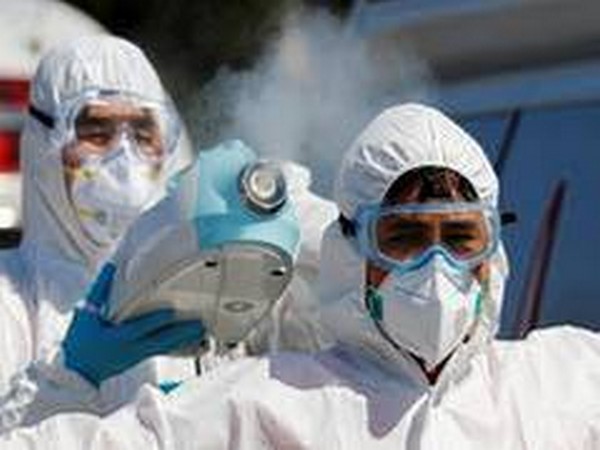Venezuelans say they need to go out to work despite coronavirus quarantine

- Country:
- Venezuela Rb
Venezuela entered the first day of a quarantine on Monday, imposed by President Nicolas Maduro to prevent the spread of the coronavirus - but many across the country went out anyway, saying they could not afford to stay indoors and not work. Venezuela has confirmed 17 cases of the virus and no deaths, but the decay of its public health system after years of economic collapse has raised alarm about whether Maduro's government is in a position to control its spread.
Many Venezuelans say they fear contracting the virus as they know there are few healthcare resources to help them if they need treatment. Maduro's government is encouraging all Venezuelans to buy masks, or fashion their own, for protection, although the World Health Organization says healthy people should only wear one if they are caring for someone with the virus and that they are only effective if used in combination with frequent hand-cleaning.
Jose Luis Nieves, a 32-year-old foraging for food in a garbage dump by Caracas' Plaza Venezuela, said he could not afford to stay indoors. He said he earns the equivalent of $2 a month recycling cardboard and plastic he finds in the street. "If we don't work, we don't eat," he said, a dirty white mask hanging from his neck. "Otherwise my kids are going to die of hunger. We have to head out like always."
Authorities on Monday set up military checkpoints on the main roads entering Caracas and were turning away some drivers, according to Reuters witnesses. Intelligence officials were also guarding entrances to some supermarkets in the city to ensure all customers were wearing masks.
On Sunday, Maduro ordered businesses to close and citizens to remain in their homes in a "social quarantine" affecting Caracas and six other states, with exceptions for transport, health, and food delivery services. Included in the quarantine are the states of Tachira and Zulia bordering Colombia, where official crossings have been closed since Friday, when Colombian President Ivan Duque announced the country would be sealing its border.
But in Zulia's capital city of Maracaibo, some clothing stores, hardware stores, markets and other commercial establishments were functioning, while banks and gas stations were closed, according to a Reuters witness. "I put on my face mask and go out to work," said Ivaldo Prieto, a 75-year-old street vendor. "Now we cannot even go to collect the pension because the banks are closed."
Hospitals in Venezuela have lost huge numbers of medical professionals and are so dilapidated that, in some cases, staff use paint buckets as improvised toilets and reuse surgical gloves. Medical professionals have expressed concern that the health system will be quickly overwhelmed.
In Tachira's capital of San Cristobal, staff say gloves, face masks and other equipment that the hospital needs to handle patients who have contracted the coronavirus have yet to arrive. While most in the city adhered to the "social quarantine," some stayed out.
"You have to go out on the street to work, because we are a country in crisis. I live day to day," said Marcos Velazco, a 47-year-old shoemaker in San Cristobal. "With the salaries we get in Venezuela, no one has enough to stock up for a week." Maria Arocha, 78, sat in a plaza in Caracas' upmarket Chacao district, said she had spent the past three days with flu symptoms and a sore throat, and was trying to get evaluated, but there was no doctor at the first clinic she visited.
"I don't think it's coronavirus," she said, praising the government quarantine.
(This story has not been edited by Devdiscourse staff and is auto-generated from a syndicated feed.)
- READ MORE ON:
- Nicolas Maduro
- Caracas
- Colombia
- Ivan Duque
- World Health Organization
- Zulia
ALSO READ
Colombia peace delegation to hold extraordinary meeting with ELN rebels
Colombia's Uribe calls witness tampering case against him political revenge
Colombia peace delegation to travel to Caracas for extraordinary talks with ELN rebels
Colombia's capital implements water rationing amid historic drought exacerbated by El Nino
Colombia's ELN rebels freeze peace talks planned for April










